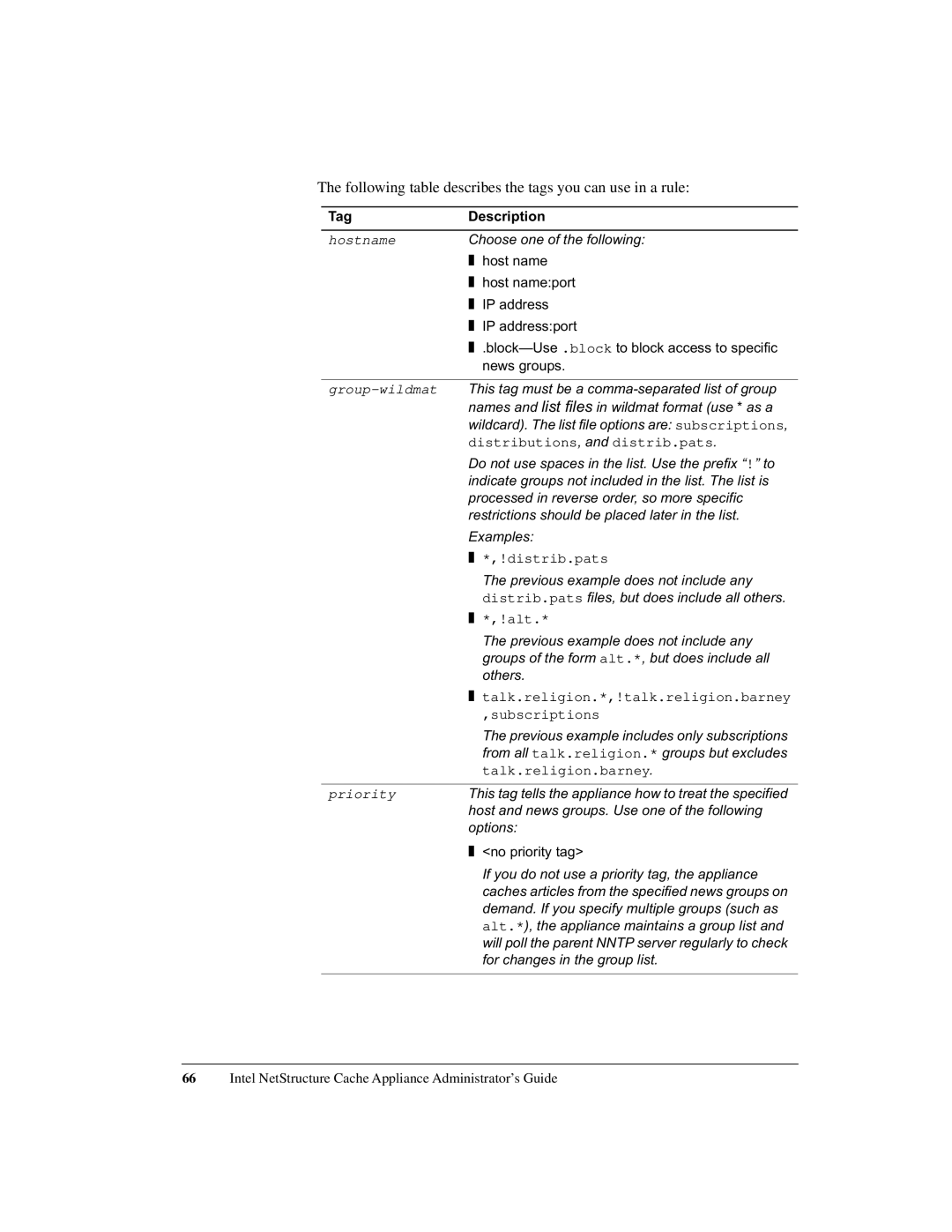
The following table describes the tags you can use in a rule:
Tag | Description |
|
|
hostname | Choose one of the following: |
| ❚ host name |
| ❚ host name:port |
| ❚ IP address |
| ❚ IP address:port |
| |
| news groups. |
|
|
| This tag must be a |
| names and list files in wildmat format (use * as a |
| wildcard). The list file options are: subscriptions, |
| distributions, and distrib.pats. |
| Do not use spaces in the list. Use the prefix “!” to |
| indicate groups not included in the list. The list is |
| processed in reverse order, so more specific |
| restrictions should be placed later in the list. |
| Examples: |
| ❚ *,!distrib.pats |
| The previous example does not include any |
| distrib.pats files, but does include all others. |
| ❚ *,!alt.* |
| The previous example does not include any |
| groups of the form alt.*, but does include all |
| others. |
| ❚ talk.religion.*,!talk.religion.barney |
| ,subscriptions |
| The previous example includes only subscriptions |
| from all talk.religion.* groups but excludes |
| talk.religion.barney. |
|
|
priority | This tag tells the appliance how to treat the specified |
| host and news groups. Use one of the following |
| options: |
| ❚ <no priority tag> |
| If you do not use a priority tag, the appliance |
| caches articles from the specified news groups on |
| demand. If you specify multiple groups (such as |
| alt.*), the appliance maintains a group list and |
| will poll the parent NNTP server regularly to check |
| for changes in the group list. |
|
|
66Intel NetStructure Cache Appliance Administrator’s Guide
